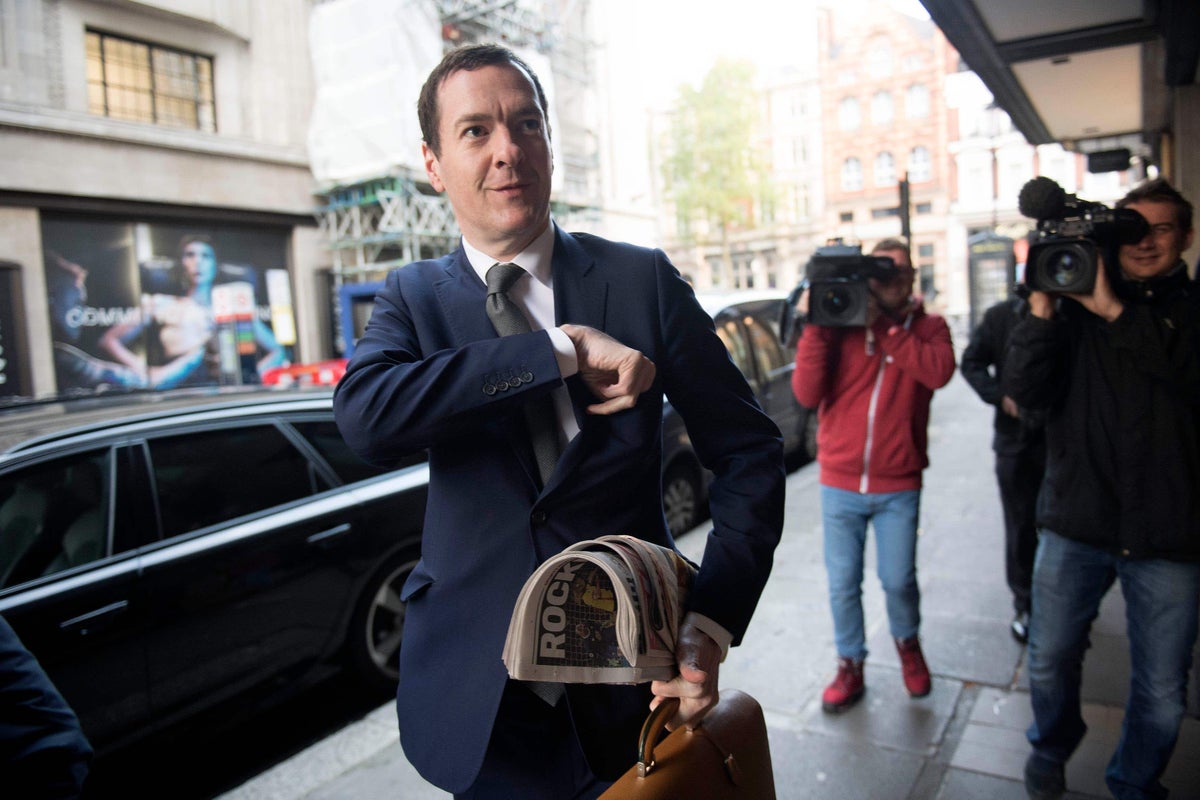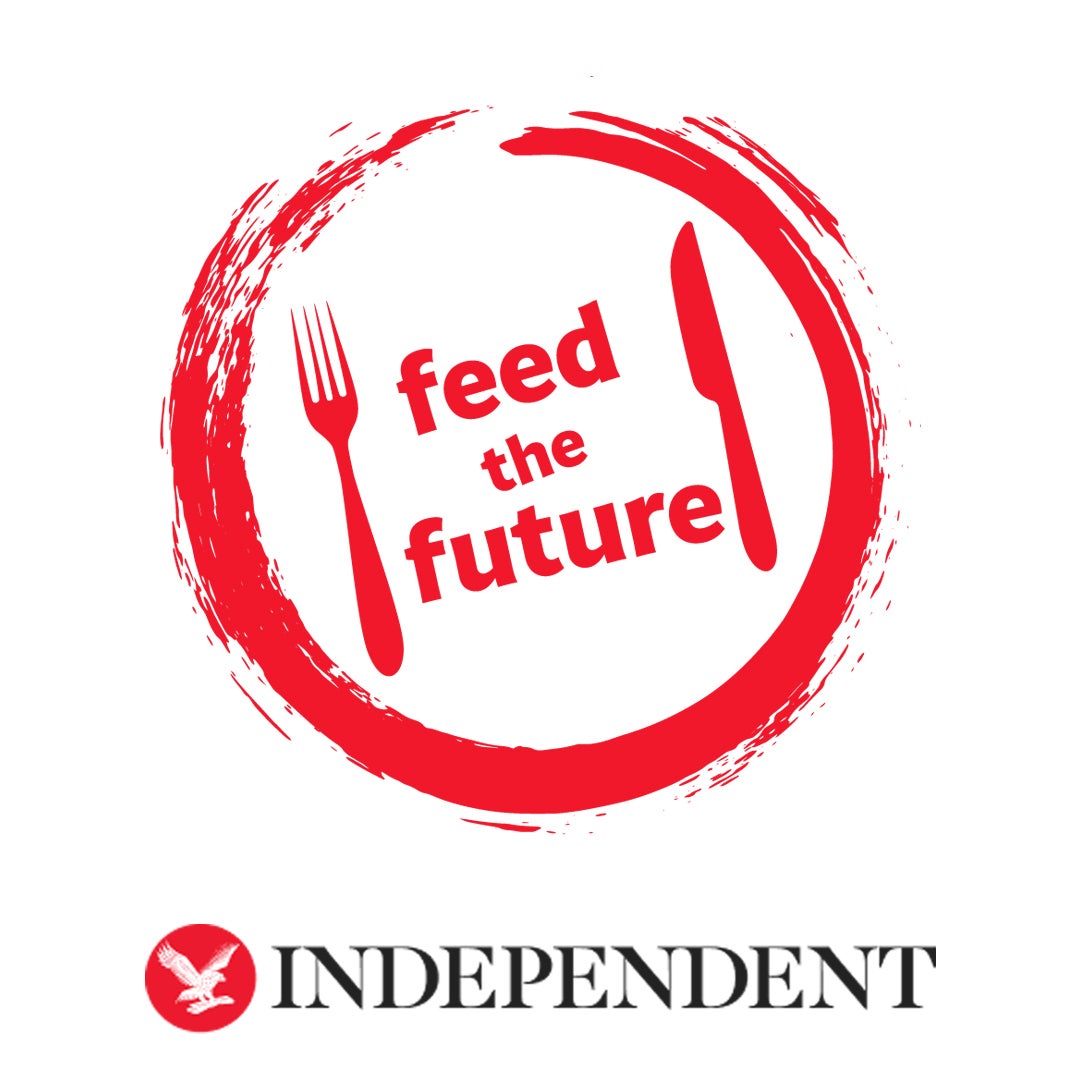
Jamie Oliver has called on Rishi Sunak’s government to extend free school meals to every child whose parents are on universal credit – insisting the move would be great value for taxpayers.
The TV chef said those who argue that the government could not be expected to feed children “come from a lens of someone that’s never been hungry, or struggled”.
According to the Food Foundation, around 800,000 children in England are living in poverty but do not currently qualify for free school meals.
Households in England receiving universal credit must earn below £7,400 a year before benefits and after tax to qualify.
“I would say by a long, long galactic way, it is the best value of a taxpayer’s buck,” Mr Oliver said on his expansion call, as he guest-edited an episode of BBC Radio 4’s Today programme.
“Why? Because the institution of school is well established. The money spent there is a very trusted, good place, measured place to do it,” he said.
The campaigner added: “If we don’t spend it here it will react elsewhere within the community … and it definitely won’t be as cheap.”
It comes as Westminster Council announced that all children attending state-funded primary schools in the borough will be eligible for free school meals from the new year.
Speaking to presenter Nick Robinson from Mary Magdalene school in Westminster, Mr Oliver said he was “proud” of the council’s new policy. “Every school, 32,000 of them, can be just like this,” he said.
The campaigning chef was asked about the high cost of providing free school meals, and why children’s parents should not be expected to feed them instead of the government.
“That can only come from a lens of someone that’s never been hungry, or struggled,” he said. “If parents worry about feeding their children, chaos ensues in many, many, many, many different ways that are immeasurable, directly.”
Mr Oliver also interviewed former Labour prime minister Sir Tony Blair, who backed his call for a greater focus on children’s health.
“This is absolutely fundamental,” the former Labour leader said. “I honestly don’t think there’s anything more important for the future of the country but to make sure we deal with this – early years education and wellbeing.”
And former Bank of England governor Mark Carney said expanding free school meals made economic sense – referring to a recent study by PwC showing that the cost of extending free school meals is outweighed by the health and attainment gains.
The accounting firm reported core benefits up to £8.9bn over 20 years, with a net benefit to the economy of £2.4bn. “It’s a big number,” said Mr Carney.
The Independent has partnered with the Food Foundation for the Feed the Future campaign, calling for an extension of free school meals to all children in households on universal credit.
Halting tax cuts given to the banks for just one week could fund food vouchers for 1.9 million children in poverty over Christmas, analysis shared with The Independent showed.

Campaigners’ analysis of the government’s Holiday Activity Fund Programme (HAFP) – which provides funding to councils for vouchers during school breaks – shows it only reached 29 per cent of the 1.9 million children eligible for free school meals.
The Food Foundation said there was now a “postcode lottery” on which local authorities provided vouchers or other additional support during the holiday.
A Department for Education spokesperson said the government understands the pressures that many households are under. “That is why we are supporting more children and young people than ever before,” the spokesperson said.
“Over a third of pupils in England currently receive free school meals in education settings and we have just announced a further investment in the National School Breakfast Programme, extending the programme for another year backed by up to £30m.”
Meanwhile, former Tory chancellor George Osborne told Mr Oliver that it was “very disappointing” that a ban on junk food TV adverts has still not been introduced.
“We wanted to ban the advertising of junk food or overly sugary food for programmes that kids might see,” he said. “That still has not been implemented. To my mind, that’s very disappointing.”
Successive governments have failed to introduce a long-promised ban on pre-watershed TV advertising for junk food, with Rishi Sunak’s new administration announcing earlier this month that the anti-obesity measure will not come into force until 2025.
Mr Osborne, who was chancellor in David Cameron’s government from 2010 to 2016 and introduced a tax on sugary drinks, said he would go further if he was still in office. “I would extend the sugar levy to non-sugary products.”







